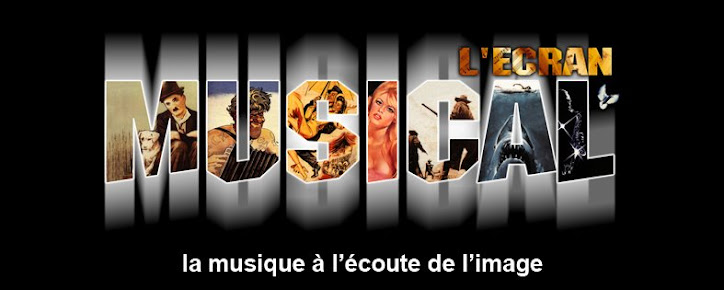THE PRIDE AND THE PASSION (1957)
ORGUEIL ET PASSION
Real. Stanley Kramer
Mus. George Antheil
LP EMI Capitol
Records AUSLP 1005 – (N.Z., 1981)
Side 1.
1. Main Title (2:28)
2. Juana –Flamenco (2:16)
3. The British Captain
(2:27)
4. Windmill Camp at Night (2:22)
5. The Knife Fight (2:40)
6. Juana’s Love Theme (4:06)
7. Rescue of The
Gun (4:05)
Side 2.
1. Juana’s Choice (3:53)
2. The Pride and The Passion – Bolero (5:58)
3. Miguel’s Theme (2:38)
4. The Procession (3:51)
5. Fulfillment and End Title
(2:43)
Cover illustration: Fredenthal
Notes Back Cover
The motion picture for which this music was written is an epic in the true sense. It is a story of human spirit and faith projected against the tempestuous background of the Spanish War of Independence in the Napoleonic era. The story centers around a band of guerrilleros who, with sheer determination and courage, drag a giant cannon 1000 miles across the rugged terrain of the Spanish peninsula. Caught up in this heroic drama are the lives of the three leading characters - the fiery and intense guerrilla leader Miguel, played by Frank Sinatra; Trumbell, a correct, duty-bound British naval officer, played by Cary Grant; and Juana, the dedicated Spanish girl whom both men love, played by Sophia Loren. Directed in Spain by Stanley Kramer, the picture makes use of this proud and passionate country in all its beauty- the Spanish face with its sharp delineations, the sensuousness of flamenco dance, and the magnificence of such ancient landmarks as the walled city of Avila.
side one
MAIN TITLE - An intense sequence with sharp Spanish accents, creating a vivid feeling of the heroic fight of the Spanish people against the French invaders.
JUANA - FLAMENCO - Juana dances for Trumbell and the guerrillerros, accompanied by fiery Andalusian rhythms.
THE BRITISH CAPTAIN - "Rule Britannia" announces the arrival of the Captain in a little Spanish town, where its tune mixes with the bustle and noises of the market square.
WINDMILL CAMP AT NIGHT - A lovely melody for oboe accompanied by guitars, depicting the quiet beauty of a Spanish night, as the camp of the weary guerrilleros rests.
THE KNIFE FIGHT - This music for a knife fight between the Captain and one of the guerrilleros reflects both the grim intensity and grace of the fighters.
JUANA'S LOVE THEME - This alluring theme, describing Juana, is played as the Captain realizes that he is falling in love with her.
RESCUE OF THE GUN - A turbulent theme, depicting the super-human effort of the guerrilleros to raise the heavy gun out of a deep ravine.
side two
JUANA'S CHOICE - Juana, having to choose between the Captain and Miguel, pledges her love to Miguel and joins him to fight for the liberation of her country.
THE PRIDE AND THE PASSION - BOLERO - The passionate drive and dignity of the Spanish people are the inspiration for this selection, written in the most Spanish of musical forms.
MIGUEL'S THEME - A romantic melody, deeply expressive of Miguel's longing for Juana.
THE PROCESSION - A chorus sung by monks as the gun is carried, dismantled and hidden, in a procession along the streets.
FULFILLMENT AND END TITLE - Orchestra and voices join in the film's closing music, heard as the Captain prepares to leave Spain after the fight against the French has been won.
George Antheil, the creator of the outstanding musical score for "The Pride and the Passion", is widely recognized as one of the foremost American composers.
Throughout his career he has maintained a special interest in Spain and Spanish music. In 1953 this interest culminated in his highly acclaimed score for "Capitol of the World", a ballet about a young Spanish boy who wants to be a bullfighter. Over the last two decades, he has composed the music for numerous distinguished motion pictures, among them "Not As A Stranger", his first collaboration with Stanley Kramer. In the present score, Antheil returns to his earlier source of inspiration, Spain, combining the rhythms and melodies of that country with his own contemporary idiom and rare feeling for drama.













Aucun commentaire:
Enregistrer un commentaire